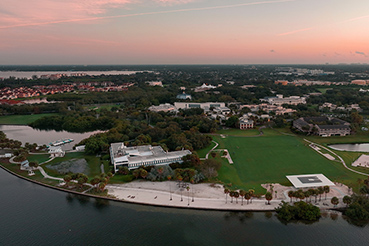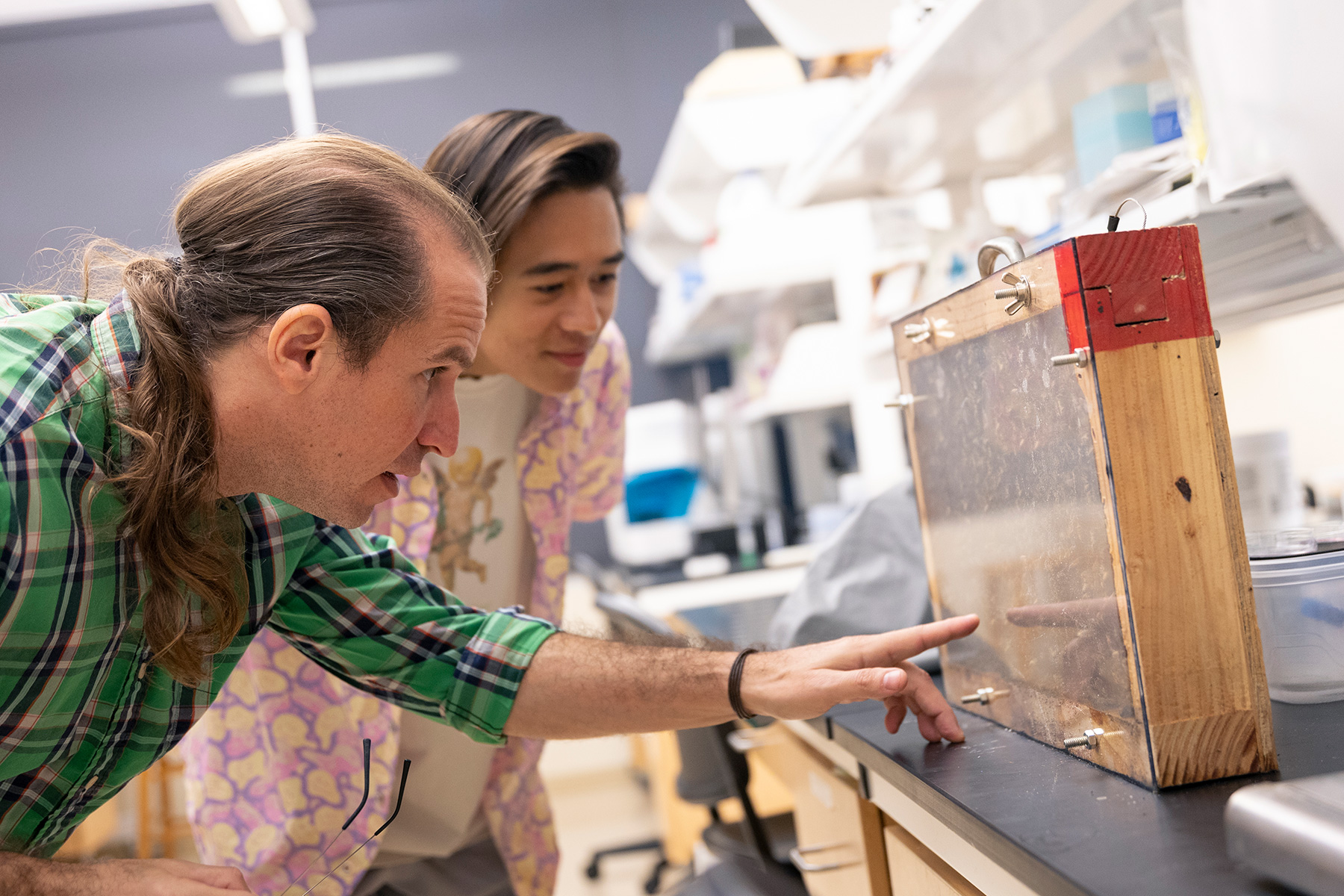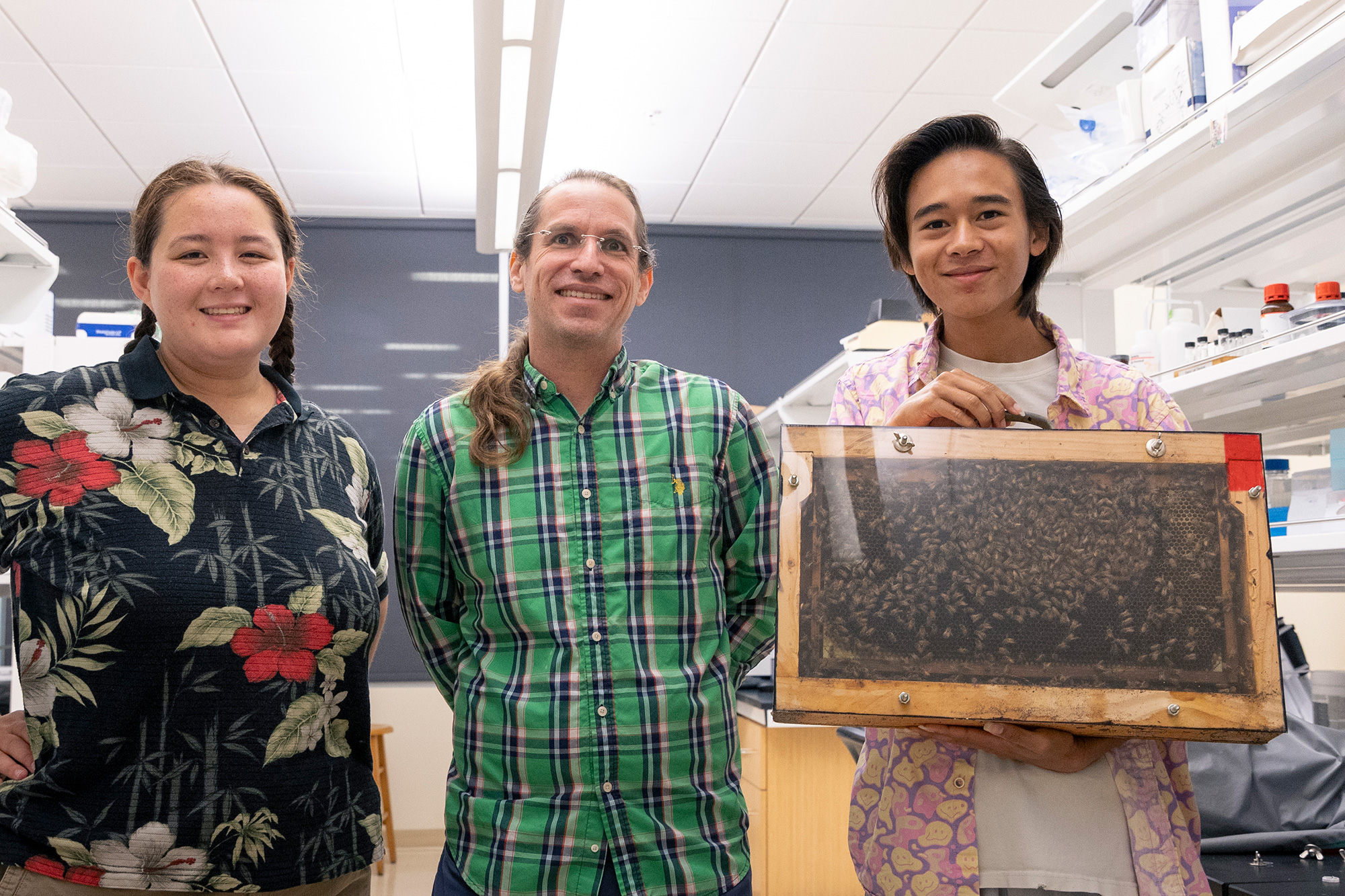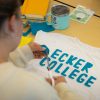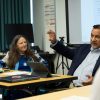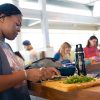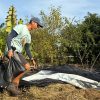Months after two natural disasters devastated the Tampa Bay area, Assistant Professor of Biology Scott Dobrin, Ph.D., has returned to working alongside Eckerd College students to explore the environmental stressors on learning in the brain development of adult honey bees.
Dobrin says he expects his students to apply the knowledge they gain in his classes to real-life projects—using interactive discussions and hands-on activities.
“Science is not a list of static facts,” he says. “It is the process we take to learn them.”
Research the “Bee Lab” is pursuing this spring explores the effects of pesticides over a long period of time, as well as combinations of these pesticides, on honey bee brains. The approach students take uses 3D imaging to depict the sensory areas of the insects’ brains—the parts that recount their learning.
Researchers in the Honey Bee Neurobiology Lab essentially observe naturally occurring changes in the bees’ brain chemistry and how much exposure they had to chemicals, such as imidacloprid, a common insecticide that acts on the central nervous system of insects.
Dobrin is focusing on the bees’ abilities to learn and how multiple chemicals may interact within the brain. The study has narrowed to analyzing how two pesticides are affecting the insects—a beekeeping pesticide and an agricultural pesticide.
Jacob Becker, a junior marine science student from Reading, Pennsylvania, and Alex Pomrenke, a senior biology student from Normal, Ohio, also work in the research lab. Jacob started working with Dobrin through the E-STEM program the summer of Jacob’s first year at Eckerd and has kept up with the Bee Lab ever since.
“It was really great to get lab experience so early in my college career, and it gave me a connection to a professor I otherwise wouldn’t have met,” Jacob explains. “Dr. Dobrin has been an excellent mentor to me for all things research.”
In addition to leading Jacob through the Bee Lab, Dobrin worked with him to formulate his research project and nominated Jacob to be a Ford Scholar. For his project, Jacob will be developing methods and experimental designs to explore insect metacognition—insects’ self-awareness of their thinking processes.

